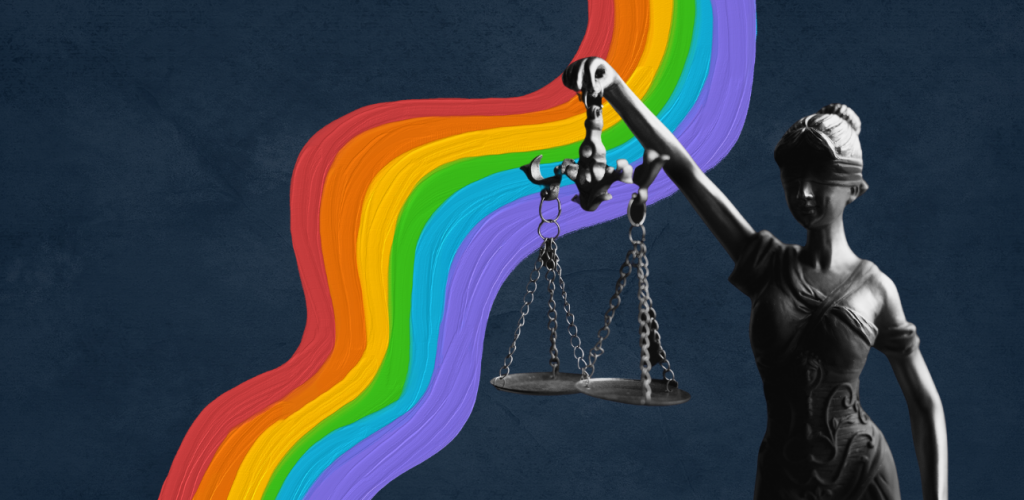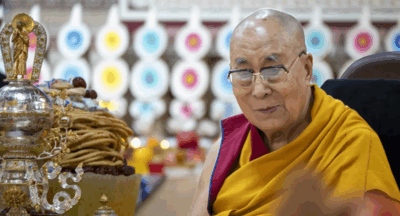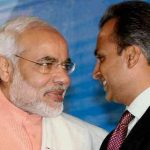By Sakshi Pritam Das
In a recent ruling issued by the Kerala High Court permitting two lesbians to live together, the court emphasised on the most essential fundamental right of freedom of individuals to choose to live with whoever they wish to, regardless of gender.
In the case of Adhila Nasarin v State Commissioner of Police, the bench of justices Vinod Chandran and Jayachandran reunited one lesbian couple who were separated by their parents.
“We were of the opinion that the petitioner and the daughter of respondents 4 & 5 should be left to live their lives as per their informed choice. We direct that the couple, as per their wish, be taken back to the Safe Home now”, the bench held in its judgment, authored by Justice Vinod Chandran.
This is not the first time that the Kerala High Court has given such an order. In a similar case in 2018, a division bench led by Justice C.K Abdul Rehim and R. Narayana Pisharadi held that individuals belonging to the same gender are entitled to a live-in relationship.
In both the cases, the petitioners had filed a writ of Habeas Corpus alleging that her partners were illegally detained by their partners’ parents.
The writ of habeas corpus is a powerful tool for obtaining immediate release from confinement, whether in jail or in private custody. In these cases, it was coupled with seeking remedies against the unlawful deprivation of liberty of a person by keeping her in unjustified incarceration.
In this case, the bench had an in-camera conversation with the partner, allegedly in illegal detention, to ascertain the facts.
The bench first talked to the alleged detenue who was very firm in her resolve to continue the relationship with her partner. On a query as to whether there was any illegal detention, the detenue categorically informed the bench that she had no complaint against her parents; but she wished to go with the petitioner. The bench also called the petitioner to the chambers and she too expressed her resolve to continue the relationship. Both the petitioner and the detenu are adults and graduates, who have now obtained employment, noted the bench.
In Shafin Jahan v. Ashokan, the Supreme Court held that the Court’s duty in habeas corpus petitions is to determine the detainee’s autonomous decision, and that when exercising its authority, care must be taken not to stray into the realm of judging the appropriateness of partners for marriage.
In Nandakumar v. State of Kerala, the Kerala High Court ordered a 19-year-old girl Thushara, who had married a 19-year-old boy Nandakumar on April 12, 2017, to her father’s custody on the grounds that Thushara was not legitimately married to Nandakumar since Nandakumar had not attained the age prescribed for marriage.
Thushara’s father claimed that she was in Nandakumar’s unlawful care and that she should be granted custody. The high court noted that Nandakumar would reach the age of marriageable age on May 30, 2018, and thus Thushara was not a lawfully married wife. And her father was entrusted with the guardianship of Thushara, who was already a major when she married Nandakumar.
When Nandakumar appealed to the Supreme Court against the High Court’s decision, the Court noted that simply because Nandakumar was under the age of 21, the marriage between the parties could not be considered null and void. According to the court, both parties are Hindus, and under the terms of section 12 of the Hindu Marriage Act, the marriage in the present case gets only voidable. And although the partners are not granted the right to tie knots to each other, they have the fundamental right to live together, the court opined.
In the present case, when the partner herself agreed that she did not have any complaint against her parents, the question of freeing her did not arise.
Another aspect that the court in the present case had to decide was whether the petitioner could live with her partner in a live-in relationship because both had the same sexual identity and could not legally marry.
Herein, the bench observed that both the petitioner and the respondent’s daughter had attained the age of majority and, according to the fundamental right granted to each individual under Article 21, the basic right to life and personal liberty, including the unhindered cohabitation of two people, is safeguarded. Therefore, the court ordered that both the petitioner and the respondents’ daughter should be allowed to lead their lives as per their own choices, and as both of them want to join their respective jobs, they should be allowed to join without holding them back for any reason.
Supporting this judgment, there are many other precedents wherein the Supreme Court has recognized that a court cannot act as a monarch and restrict the liberties of an individual who has attained the age of majority.
In Soni Gerry v. Gerry Douglas, the daughter, who was a major, expressed her wish to live with her father in Kuwait, where she was continuing her degree. The Court dismissed her mother’s habeas corpus case on the ground that the daughter, as a minor, was free to make her own decisions.
In Sreeja S. v. Commissioner of Police, Sreeja and Aruna, two females who had attained the age of majority were in a relationship. After leaving her parents’ home, Aruna moved in with Sreeja. Aruna was arrested and taken before a judicial magistrate after her parents filed a missing person complaint with the police. During those proceedings, Aruna clarified that she was living with Sreeja of her own free will, ensuring her release. So, the Kerala High Court held that petitioner’s live-in relationship with the detenue would not violate any law, and ordered that the detenue should be allowed to freely reside with the petitioner if she wished the same.
In Chinmayee Jena v State, the Orissa High Court cited the landmark judgement National Legal Services Authority vs. Union of India given by Supreme Court, wherein the court had held that the fundamental right to dignity includes the acknowledgment of one’s gender identity.
Referring to the Supreme Court’s decision in Navtej Singh Johar versus Union of India (2018) wherein Section 377 of IPC was held unconstitutional, Justice S.K.Mishra, who authored the main judgment, wrote that petitioner has the right of self-determination of sex/gender and also he has the right to have a live-in relationship with a person of his choice even though such person may belong to the same gender as the petitioner.
According to Justice Savitri Ratho, who gave a separate concurring judgment in this case, the two adults have the freedom of choice to have a relationship and live together, and society should accept their decision.
Herein, is the same case as mentioned above, Adhila and Fathima Noora recognised themselves as lesbians and had decided to live as a couple. This was opposed by their family members who had separated them.
In the case of Ujjawal & Anr. against State of Haryana & Ors., the Punjab and Haryana High Court declined to shield a young couple from threats received from the girl’s family, noting that “if such protection as demanded is provided, the entire social fabric of the society will be upset.” But, in the case of Chinmayee Jena v State (Supra), the Orissa High Court directed that the petitioner’s partner can access all the rights given to a woman as enshrined under the Protection of Women from Domestic Violence Act, 2005.
It appears that some High Court Judges are yet to digest what the Supreme Court had said in S.Khushboo versus Kanniammal (2010):
“Notions of social morality are inherently subjective and the criminal law cannot be used as a means to unduly interfere with the domain of personal autonomy”. (IPA Service)
Courtesy: The Leaflet


 Crony Capitalism And Narendra Modi’s Friends In Business World
Crony Capitalism And Narendra Modi’s Friends In Business World 